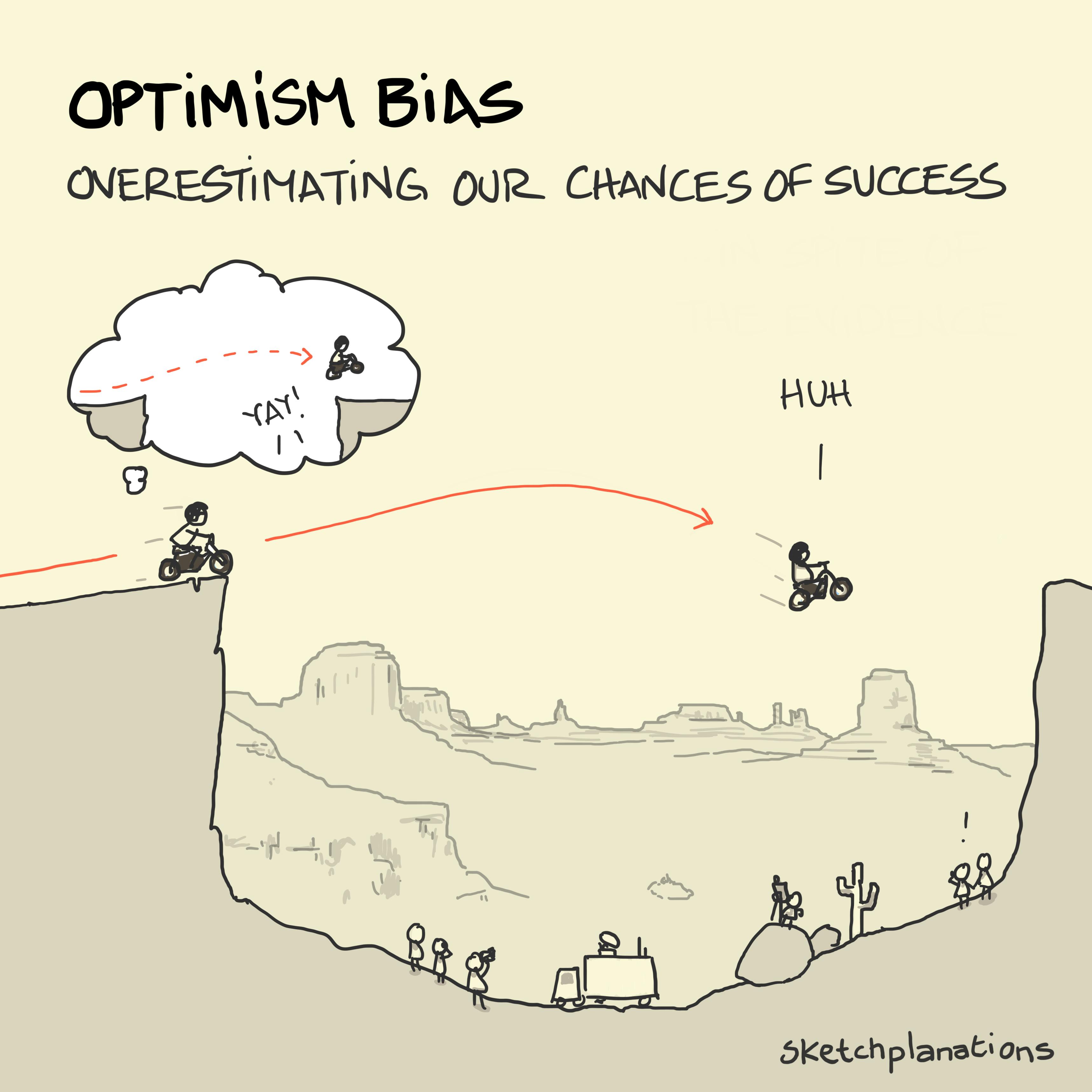Optimism bias

👇 Get new sketches each week
Optimism bias is believing things will turn out well despite past evidence or circumstances.
It can be extremely helpful. It allows us to attempt things that many may deem impossible. It probably helps motivate entrepreneurs even when everyone doubts them. Optimists are often healthier and happier.
But it can also undermine us.
We might overestimate our chances of success because of what we want to happen rather than what's likely to happen.
We may feel pressure from others to give a rosier outlook — like when you might underestimate a timeline when speaking with your boss.
We might want others to succeed, or they may be paying us money and hoping for good news.
We probably think we'll get more done next week.
We probably think we'll be more disciplined than we will be.
We might think that this time it'll be different or that everyone can't be wrong.
Or we may be just discounting evidence without realising it.
May your optimism be well-founded.
Related Ideas to Optimism Bias
Related:
Optimism bias print with a little colour

